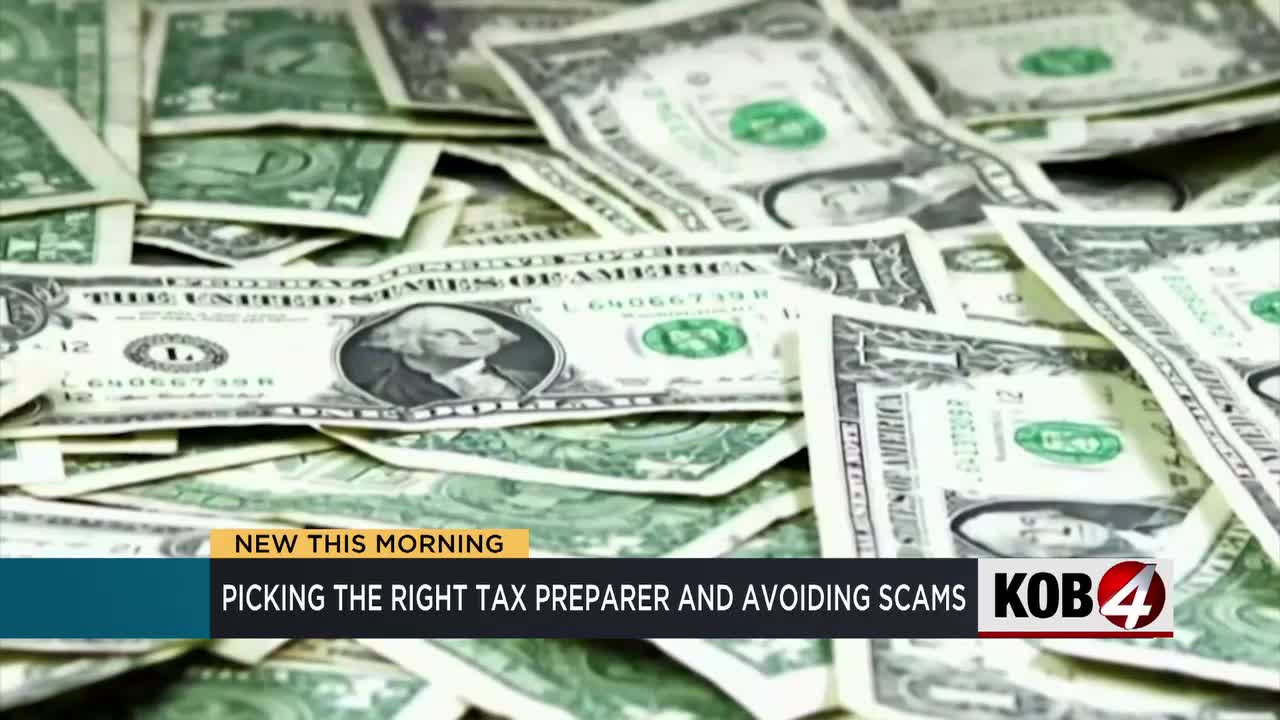What to know to avoid tax filing scams

ALBUQUERQUE, N.M. — Whether you like it or not, tax season is upon us and, while some opt to file their own taxes, many people seek outside help.
With that comes another opportunity for scammers. That is why you’ll want to know what tax preparers are out there and who to consider when making filing decisions.
- Enrolled agents (EAs) – People approved by the IRS to represent taxpayers
- Certified public accountants (CPAs) – People licensed after passing a state professional qualifying exam
- Non-credentialed tax preparers
- Tax attorneys
Non-credentialed tax preparers often work part-time or only during tax season. These preparers must have an active preparer tax identification number through the IRS – so ask for that.
An attorney can help you with legal matters surrounding your filing decisions.
With all of these options and things to consider, there are some red flags you’ll want to watch out for.
“You really want to be wary of tax preparers or advertisers that are advertising quick returns or bigger returns or “will get you more money back.” All of those things are not subject to what your tax is due,” said David Swope, the president and CEO of the Better Business Bureau New Mexico.
You’ll also want to review your tax preparer’s credentials. Remember, EAs, CPAs and tax attorneys are all qualified to represent their clients to the IRS on all matters.
Other preparers can help you with forms and basic matters. However, they can’t represent you if you get audited.
“One of the things that you do want to do is look for is that they have a PTIN. It’s a tax preparer’s identification number. If they don’t have a number, then they are uncertified. That doesn’t mean that they can’t prepare your taxes but now you’re going on their personal experiences or background,” Swope said.
The tax filing deadline is April 15. To check business ratings or one’s licensing, you can go to the BBB website.